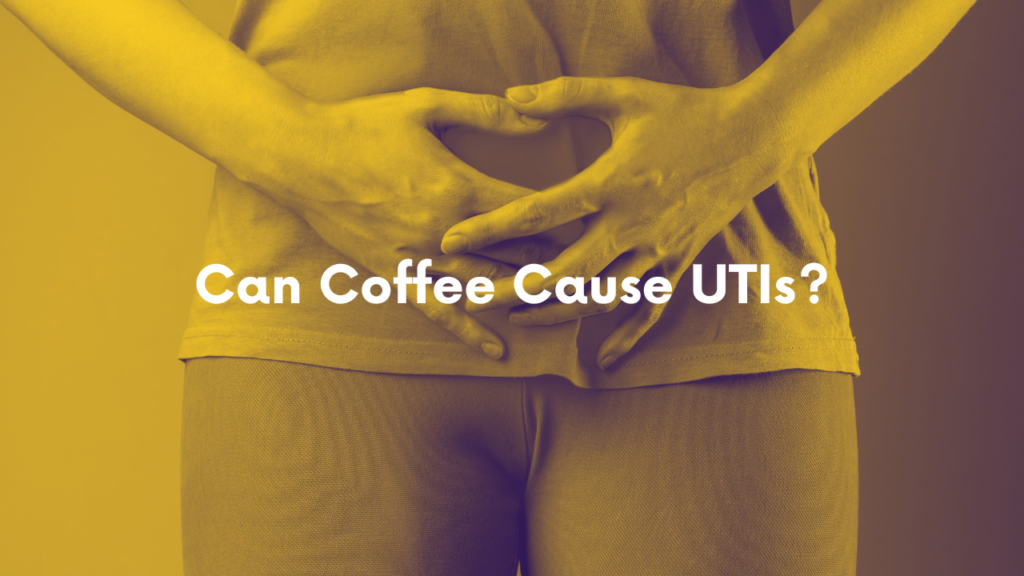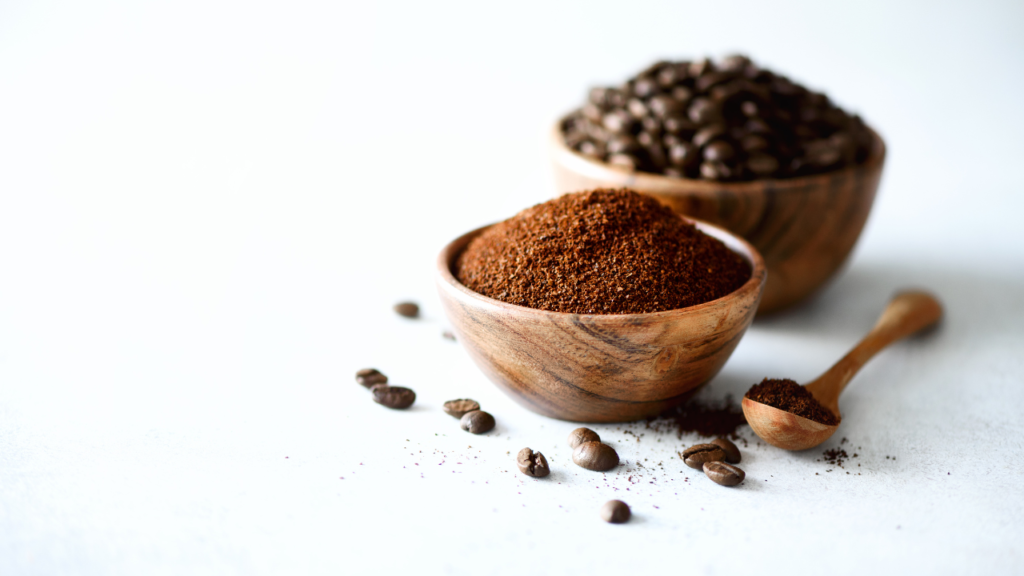
Can coffee cause UTIs? UTIs are common infections that can affect any part of the urinary tract, from the bladder to the kidneys. UTIs are most commonly caused by bacteria and can be treated with antibiotics if caught early.
Coffee is a popular drink enjoyed by many people around the world. But could coffee be causing UTIs? Recent research suggests that coffee may be one of the culprits behind UTIs. Here’s what you need to know about coffee and UTIs.
Can Coffee Cause UTIs?
Can coffee cause UTIs? It’s possible. Coffee is a diuretic, meaning it makes you urinate more frequently. This can lead to dehydration, and UTIs are more common in people who are dehydrated. Additionally, coffee contains caffeine, which can irritate the bladder and increase the likelihood of developing a UTI.
However, it’s important to note that UTIs can also be caused by a number of other factors, including sexual activity and poor hygiene. So, while cutting back on your coffee intake may help prevent UTIs, it’s not the only solution.
Why Coffee Can Cause UTIs?
UTI is an abbreviation for UTI, which is short for UTI. UTIs are one of the most common infections, affecting millions of people every year. UTIs are more common in women than men because the urethra is shorter in women, making it easier for bacteria to reach the bladder.
Coffee can cause UTIs because coffee is a diuretic. A diuretic is a substance that increases the production of urine. When you drink coffee, it causes your body to get rid of extra fluid through urination. This can lead to dehydration, which makes you more susceptible to UTIs. In addition, coffee can also irritate the lining of the bladder and increase the risk of UTIs. If you have recurrent UTIs and suspect that coffee may be playing a role, try avoiding caffeine altogether and see if that helps.
Can Decaf Coffee Cause UTIs?

While coffee is a known UTI trigger, the same isn’t necessarily true for decaf coffee. Decaf coffee is made by removing caffeine from coffee beans. This means that decaf coffee still contains many of the same compounds as regular coffee, including compounds that can irritate the bladder and increase the risk of UTIs. However, research on the link between decaf coffee and UTIs is sparse.
Therefore, it’s difficult to say with certainty whether or not decaf coffee can cause UTIs.
If you’re concerned about UTIs and coffee, it may be best to avoid both regular and decaf coffee altogether. Alternatively, you could try reducing your intake of coffee and see if that helps.
Other Reasons Why Coffee Can Cause UTIs

1. Coffee is a diuretic and can cause dehydration, which makes you more susceptible to UTIs.
2. The caffeine in coffee can irritate the bladder and increase the urgency to urinate.
3. Coffee can also stimulate the production of bacteria in the urinary tract.
4. Acidic coffee may heighten the risk of developing a UTI.
5. Drinking coffee in excess can lead to a decrease in immune system function, making it harder for your body to fight off bacteria.
So, next time you’re reaching for that extra cup of joe, remember to drink plenty of water and limit your intake to prevent the potential risk of developing a UTI. Stay hydrated and protect your bladder!
What Can Cause UTIs To Keep Coming Back?

There are many potential causes of recurrent UTIs, including:
- Poor hygiene habits
- Sexual activity
- Using douches or other feminine hygiene products
- Contraceptive devices such as diaphragms or spermicide-coated condoms
- Structural problems with the urinary tract
- Diabetes
- Kidney stones
- Certain medications
- A weakened immune system
It is important to speak with your healthcare provider to determine the specific cause of recurrent UTIs and develop a plan for preventing future infections.
Should You Drink Coffee While Having UTIs?
Coffee is a popular drink that has many health benefits. However, there is some debate over whether or not coffee should be consumed when someone has a urinary tract infection (UTI).
Some people believe that coffee can help to clear UTIs faster. Caffeine is thought to help to shrink the size of the bacteria, which makes it easier for the body to flush out. Additionally, coffee can help to increase urine production, which can also help to speed up the healing process.
However, other people believe that coffee can actually make UTIs worse. The caffeine in coffee can irritate the bladder and make UTIs more painful. Additionally, coffee can act as a diuretic, which can lead to dehydration and make the infection worse.
Tips To Avoid UTIs

1. Drink plenty of fluids, especially water
2. Urinate frequently and when you need to
3. Empty your bladder completely each time
4. Wipe from front to back after using the bathroom
5. Avoid tight-fitting underwear and pants
6. Avoid using harsh soaps or bubble baths in the genital area
8. Choose showers over baths
9. Consider taking a probiotic supplement to promote urinary health
10. Talk to your doctor about any medications that may increase your risk of UTIs, such as birth control pills or antibiotics. They may be able to suggest an alternative medication.
Can Coffee Actually Help With UTIs?

There is some preliminary evidence that coffee may help to prevent UTIs. A study published in the journal “Antimicrobial Agents and Chemotherapy” in 2009 found that drinking caffeinated coffee may help to inhibit the growth of E. coli, the bacteria most commonly responsible for UTIs. However, more research is needed to confirm this association.
While drinking coffee may potentially have benefits for UTI prevention, it is important to note that too much caffeine can also have negative effects on bladder health. It is important to consume caffeine in moderation and stay well-hydrated to support urinary health. Consult with your healthcare provider for personalized recommendations.
Can Coffee Cause UTIs: The Verdict
UTIs are a common infection, especially in women. UTI sufferers often turn to coffee as a home remedy in the hopes that it will help clear up their infection. In this article, we take a look at whether or not there is any scientific evidence to support using coffee as a UTI treatment. We also explore some of the possible side effects of drinking coffee if you have a UTI. Finally, we provide some tips on how you can reduce your risk of developing UTIs in the first place.
The short answer is that no, there is no scientific evidence to support the use of coffee as a UTI treatment. While some users may experience temporary relief from UTI symptoms, this is likely due to the caffeine in coffee, which can act as a diuretic and temporarily increase urination. However, this does not actually treat the UTI itself.
In fact, drinking coffee during a UTI could potentially make your symptoms worse. The acidity in coffee can irritate the already inflamed urinary tract and worsen discomfort. It can also contribute to dehydration, which can actually prolong the UTI and delay healing time.
So what can you do to prevent UTIs in the first place? One of the best ways to reduce your risk is to stay hydrated and urinate regularly. This helps flush out bacteria that may be present in the urinary tract. Wiping from front to back after using the bathroom and avoiding holding in urine for long periods of time can also help prevent UTIs. And always make sure to practice safe sex to reduce your risk of UTIs caused by sexually transmitted bacteria.
In conclusion, while drinking coffee may provide temporary relief from UTI symptoms, it should not be relied upon as a UTI treatment. The best approach is to focus on prevention and seek medical care if you do experience UTI symptoms. Talk to your healthcare provider about the best UTI prevention and treatment plan for you.
Check out our blog on if coffee can cause panic attacks here.